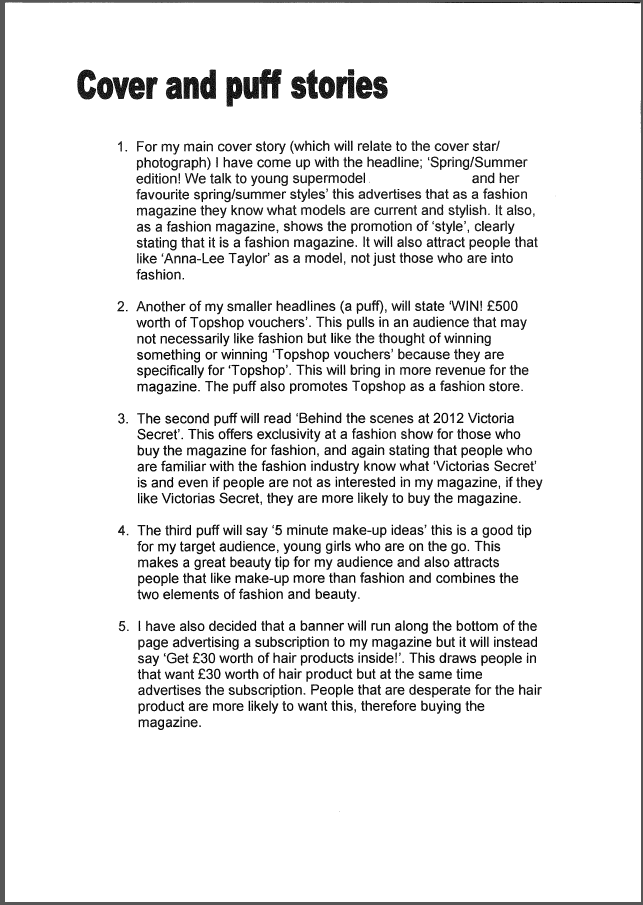Learning objective:
To complete the research and planning aspects of my coursework
This GCSE course is 60% coursework and 40% examination.
You will submit an assessment file which will be made up of three pieces of work completed during the course and showing a range of kills.
Research: 10 Marks
Planning: 10 Marks
Production: 50 Marks
Evaluation: 10 Marks
Research (10 Marks)
You must show evidence of research consisting of a minimum of two pieces and a maximum of four pieces. Research methods that can be used include:
Text annotation. E.g. Anotating a magazine cover that has the same target audience as the one you want to create.
Audience research. The results shown from focus groups or questionnaires in the form of a bar chart or a pie chart.
Research into media organisations including for example the production and distribution of similar texts to the one you want to create e.g: film and TV companies, advertising agencies.
Research into budgets and production costs for your chosen texts.
Higher marks are given to students who can explain how the findings of research have been used in the final production and by using media terminology which is appropriate to your chosen text.
Planning (10 Marks)
You must show planning approaches appropriate to your chosen production text - a minimum of two and a maximum of four planning techniques are required. Planning approaches may include:
Scripts
Storyboards
Mood boards
Mock ups
Experimenting with font styles, masthead ideas or photographs.
Higher marks are gained by clear explanations of how techniques have been used to develop the final production and by using media terminology appropriate to your chosen text.
___________________________________________________________
Research and Planning:
To gain a level 3 you must
- Present evidence relating to textual organisation e.g. Genre, narrative, representation.
- Show an understanding of audiences / users
- Demonstrate that you have explored other similar examples.
- Use appropriate media terminology
____________________________________________________________
Task 1:
Complete the handout form 'Production Planning Sheet' neatly with your name and centre at the top.
Task 2:
Insert black and white print outs of your research and planning into your orange folders.
E-mail to Mr Ealey if you have problems printing.
Research and planning must be complete and submitted before Thursday 22.10.15
Work on productions will start immediately after half term.



















